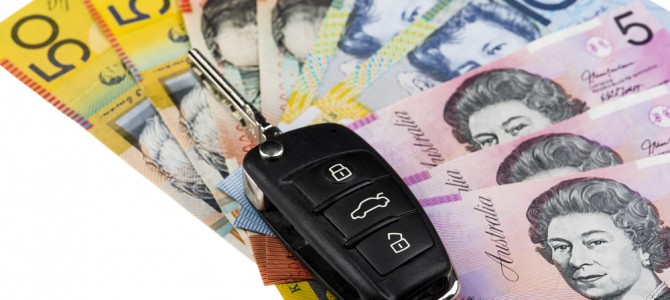A few hours after news broke that terrorists holding a black Islamic flag were holding people hostage in a Sydney, Australia, cafe, social media erupted with complaints about how Uber was responding to the situation.
Uber is the private business that disrupts the taxi cartels in cities throughout the world. Individuals can call for cars — driven by individuals who set their own hours — to come pick them up and take them wherever they want to go. Usually everything is billed to a credit card that’s on file. And prices reflect changes in supply and demand for cars. So if Uber determines demand for cars is high but supply is low — say, just after midnight on New Year’s Eve — the price is adjusted to lure more drivers onto the road. If there’s an excess supply of drivers, prices are dropped.
So in the aftermath of the chaotic situation in Sydney, Uber said it was raising prices to try to get more drivers out on the road to meet demand. Which is when some folks turned their attention to confusion and anger about the pricing mechanism.
A sample:
When this is over, @uber, they will sing songs of your #fail here: #Sydney pic.twitter.com/wC8iiK2xnz
— Steve Marmel (@Marmel) December 15, 2014
So, is @uber just running an Objectivist LARP?
— Erika Hall (@mulegirl) December 15, 2014
. @Uber sure has gone from "thing I kind of like and think is cool" to "thing I think is really gross to use" very, very fast.
— Ben White (@morningmoneyben) December 15, 2014
Uber but for profiting from hostage crises http://t.co/KNS9Ydud97 pic.twitter.com/i7FlvF3tCc
— The real Jon Brodkin (@jbrodkin) December 15, 2014
Stay classy, @Uber_Sydney http://t.co/fzAhjUUtj2
— Josh Taylor (@joshgnosis) December 15, 2014
As #sydneysiege unfolds, @Uber surge pricing kicks in. Uncomfortable example of market forces at work. @mashable http://t.co/EFEcbl9UKd
— John Sinclair Foley (@johnsfoley) December 15, 2014
Uber is a pile of garbage. http://t.co/eQAcoe0lFa
— Jonah Keri (@jonahkeri) December 15, 2014
Oh, hey, what a surprise that Uber, a horrible and unscrupulous company, is profiteering during a crisis. http://t.co/xIM7ydlnnJ
— Jesse Spector (@jessespector) December 15, 2014
You really don’t want to know how many of the tweets disparaging this pricing change were from journalists.
It’s unclear exactly what these genius economists on Twitter were thinking. Was it that Uber should keep the prices low, thereby failing to lure more drivers on the road and not help potential customers? Was it that they should give the rides away for free? Were they thinking everything that might be in higher demand at this moment should be free? On what basis other than gut emotion were they setting the price for others’s goods or services at free? Were they themselves offering some service to the affected for free? No matter, the social media mob prevailed once again (hurray!) and Uber decided to keep the rides at the high price in order to lure drivers but fully refund customers for all rides taken from the affected area.
Some people with a better sense of perspective — or economics — noted:
There are more tweets about Uber in Sydney than about jihad in Sydney.
— John Podhoretz (@jpodhoretz) December 15, 2014
I'm trying to come up with something more provincial than whining about Uber in the midst of a terrorist attack and I've got nothing.
— Sean Davis (@seanmdav) December 15, 2014
And my favorite take on the “like Uber” meme:
Like Uber but for people who don't understand how free markets work.
— Drew M. (@DrewMTips) December 15, 2014
It’s not entirely related, but I’ve long had a theory that some people develop conspiracy theories because of failures in their ideology. The existence of 9/11 Truther theories makes more sense if you imagine they were developed by someone very scared to come to terms with the existence of serious and extremely-difficult-to-fight evil in the world.
In the case of the Uber freakout, the provincial/ridiculous reaction to a price change during what appears to be an Islamist terrorist attack makes more sense in a similar vein. As this guy said:
Idea for long-form article: The way people, in midst of a breaking crisis they can't do anything about, find proxy villains to rail against.
— Will Antonin (@Will_Antonin) December 15, 2014
These people may feel helpless in the face of random, Islamist-related terrorism. They return to more comforting territory: getting mad at a private Western business.









